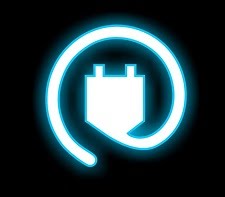
A BBC reporter detained last week in North Korea released his account of the ordeal Friday, describing how he was held for 10 hours before being expelled from the country.
Rupert Wingfield-Hayes, the BBC’s Tokyo correspondent, was in Pyongyang to cover a weeklong visit by three Nobel laureates to the country’s capital. The trip, designed to show North Korea’s desire for increased international exchanges, was marred as the country detained Wingfield-Hayes for writing stories the government deemed to be “offensive” to its people.
“I was told that my reporting had insulted the Korean people and that I needed to admit my mistakes,” Wingfield-Hayes said in a story published by the BBC Friday morning.
The offending bits apparently included references to a “grim-faced” customs official who “barked” at the reporters, which a North Korean official said portrayed his people as dogs.
After intervention from his editors and a written apology, Wingfield-Hayes was eventually released. But his problems didn’t end there, as the North Korean government blocked his exit from the country for two more days before finally expelling him.
While Wingfield-Hayes was no worse for wear after the incident, it gave him insight into one of the most repressive and reclusive societies in the world.
“They gave me a rare glimpse inside the dark heart of the North Korean state,” Wingfield-Hayes said in the story. “I spent only 10 hours in detention. But in that time I got to see just how easy it is for someone in North Korea to disappear. I got to feel the terror of being isolated and accused of crimes I had not committed, and to be threatened with a trial in which the evidence would have been irrelevant, and my guilty
The incident raises questions about the treatment of foreign journalists by a countryReporters Without Borders labeled the second worst in the world for journalistic freedom.
Washington Post reporter Anna Fifield took to Facebook Live earlier this month while in North Korea in an attempt to show Americans what life is like in the country for an outsider.
Fifield showed viewers her hotel room and the lights of Pyongyang in anticipation of the upcoming Worker’s Congress, and fielded questions about her trip. While Facebook and Twitter are banned in the country and North Korea is not known for its Internet connectivity, she used a North Korean SIM card to connect to the streaming service.
Despite the resistance encountered by the BBC, Fifield said she thought the country was changing and becoming more tolerant of foreign press.
“I am obviously careful about being here, but, no, I feel fine,” she said in the live video.
North Korea seems to have relaxed some of its hostile policies toward foreign media outlets, at least in theory. The Associated Press opened a Pyongyang bureau in 2012 and Agence France-Presse followed suit earlier this year.

No comments:
Post a Comment